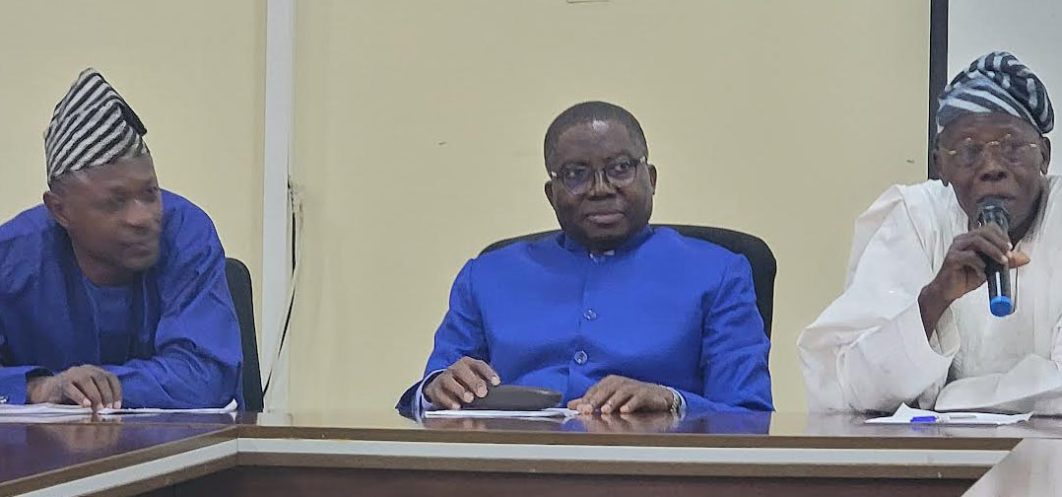
An icon of journalism in Nigeria, Dr. Dayo Duyile, has disclosed his unwavering commitment to the field of journalism, stressing that the profession would remain his life’s purpose until his last breath.
Duyile, a revered figure in the world of journalism with over six decades of experience, emphasised the importance of upholding journalistic standards and ethics, asserting that truth, accuracy, and fairness should always be at the core of the profession.
The octogenarian stated this while being honoured by the Association of Communication Scholars and Professionals of Nigeria (ACSPN) at Elizade University, Ilara-Mokin, Ondo State, on his feat of becoming the oldest person to obtain his doctoral degree from the University of Lagos at the age of 82.
Duyile, who is currently a lecturer in the Department of Mass Communications at Elizade University, in a paper titled “Developing Research in Newspaper Journalism as Distinct from Mass Communication,” which he delivered during the special recognition of the association’s “Eminent Persons Series,” underscored the need for increased focus in scholarly research within the field of journalism.
According to him, research would enable professionals to deepen their understanding of the industry’s intricacies and develop innovative approaches to the field.
He said: “We should recognise that Newspaper and Magazine journalism is distinct from Radio journalism, which is verbal communication, and Radio broadcast journalism is, though similar to television journalism, which is visual. The three or four realms of mass communication have differences in their methods and applications.
“None is inferior to the other. They work together as tools of mass communication but could be separated when students and scholars embark on carrying out their empirical studies.
“We, African students and scholars, should begin to turn our attention to doing research in journalism regularly, as we have been doing in Mass Communication, rather than concentrating all our research efforts on mass communication effects.
“The researcher who follows the responses of media audiences to Newspaper news reports, Newspaper editorials, advertorials, feature articles, and interviews will soon discover that the Bullet theory, or the Hypodermic needle theory, is not dead after all.”
This is one of the oldest theories in the history of mass communication research.
“It was propounded in the 19th to 20th centuries by the Yale psychologist Harold Lasswell in his 1948 studies of World War II propaganda, in which he explained the effects theory in his famous model of mass communication. “
The Vice-Chancellor of Elizade University, Prof. Olukayode Amund, who lauded Duyile for his enormous contribution to mass communication in the country, said, “Apart from Dr. Olusegun Obasanjo, who got his PhD in the 70s, I’m not aware of anyone who got his PhD at the age of 82. Dr. Duyile is just showing all of us in Nigeria that nothing is impossible.
“I hope the younger generation will take a cue from this exemplary gesture of our father, who was not discouraged; he was undaunted and faced the challenge of completing his PhD programme.”
The Head of Department, Mass Communication, Elizade University, Dr. Wole Adamolekun, and Vice President, South-West Chapter of ACSPN, Prof. Rotimi Olatunji, disclosed that the role and status of Duyile in the media world earned him the robe of “Eminent Personality.”






